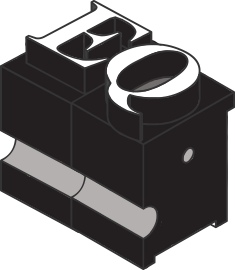
Edmonton Headlines: Monday, May 15, 2017
Journalists need to do better at inclusion
a group of white editors of mainstream CND publications are gathering money for an “Appropriation Prize” at 12 am, a fine and normal thing pic.twitter.com/GgNttUeOo7
— Scaachi (@Scaachi) May 12, 2017
If you happened to miss it over the last few days, Canada’s news media had a bit of an implosion after most of the top editors and bosses in the country put our journalism’s systemic racism and white privilege on display.
I will let Buzzfeed’s Scaachi Koul catch you up on the first couple of days.
Some of those involved in letting their privilege slip very publicly don’t like the attention the initial editorial received, nor their own backlash, but that’s the power of the Internet. (Some have also apologized.)
“When these issues come up, they will be called out repeatedly and vociferously.”
The Internet, and social media, allows those who have been marginalized for so long, or are marginalized in a current issue or debate, to stand up to power. It is especially empowering when you can see you are not the only one who wants to challenge an unfair system. That’s what some of these editors – many of the most powerful and influential in Canadian media – didn’t get before the weekend, and some still don’t get. Yours is not the only voice, and it shouldn’t be the only one printed or broadcast anymore. And asking white people to write about the experiences of other voices in order to diversify is not inclusion, it’s cultural appropriation.
If journalists want to tell stories that truly matter we cannot be afraid of challenges to our privilege.
All of the same cautions and challenges confront me as publisher of Edmonton Quotient, since I’m a privileged white male. I can say that I want to do better than other newsrooms and media companies have, paying more Indigenous journalists, women and writers of colour to produce stories here, but I also have to want to be held to account on that. Because of my privilege, my intentions won’t be enough to keep it in check. And I trust you, the audience of EQ, to help me do that. If we let you down, please let us know. (Twitter outrage is also welcome.)
Today, I stand by the promise made when we launched that as we make money to produce original journalism it will flow to Edmontonians who don’t look like me.
Around the city
The new Walterdale Bridge will open this year. Maybe. Probably. It’s never going to open, is it?
Of course, the bridge was supposed to open back in 2015. The delays now mean the construction company is being fined $17,000 every day until it opens to make up for the cost overruns. Let’s also hope the old bridge can hold out without the need for any more fixes, since it is being replaced because it was deemed to be near the end of its usable lifespan.

Edmonton’s new Walterdale Bridge, opening in 2015 2016 2017
As our current city council winds down their term, we’ll likely see a few more articles looking back at the men (and one woman!) who made up Edmonton City Council 2013-2017 and what they accomplished. Ward 4’s Ed Gibbons is being noted as a quiet, but effective councillor. And there’s also something to be said for a councillor who doesn’t want to make a life of the job, even though incumbency rates can basically guarantee it.
Edmonton is among the cities that need to consider more infrastructure for reusing our wastewater, or gray water. It can be a City’s job, but homebuilders could also start incorporating some tools to help make this part of how more of us live. This was part of the initial plans for the community going up on the old city centre airport site.
You may have noticed one or two payday loan locations disappear on your travels around the city, as they struggle with new rules to keep people from getting trapped in a debt cycle with their businesses.
Watch for your nearest transit centre to undergo upgrades this summer, as Edmonton uses up some federal money to renovate and update the hubs.
One of Edmonton’s longest-running Indigenous events celebrated 36 years on the weekend.
Edmonton is going to need more services for immigrants to our city, especially if we get a big wave all at once like our new Syrian neighbours who came here more than a year ago.
Speaking of immigrants… Amber Valley is being recognized nationally for its place in Alberta, and Canada’s black history as a place people fleeing persecution in the U.S came to make a new home.
This post was updated May 15, 2017.
If you enjoyed this story, and want to see more like it, consider supporting us.
Support EQ